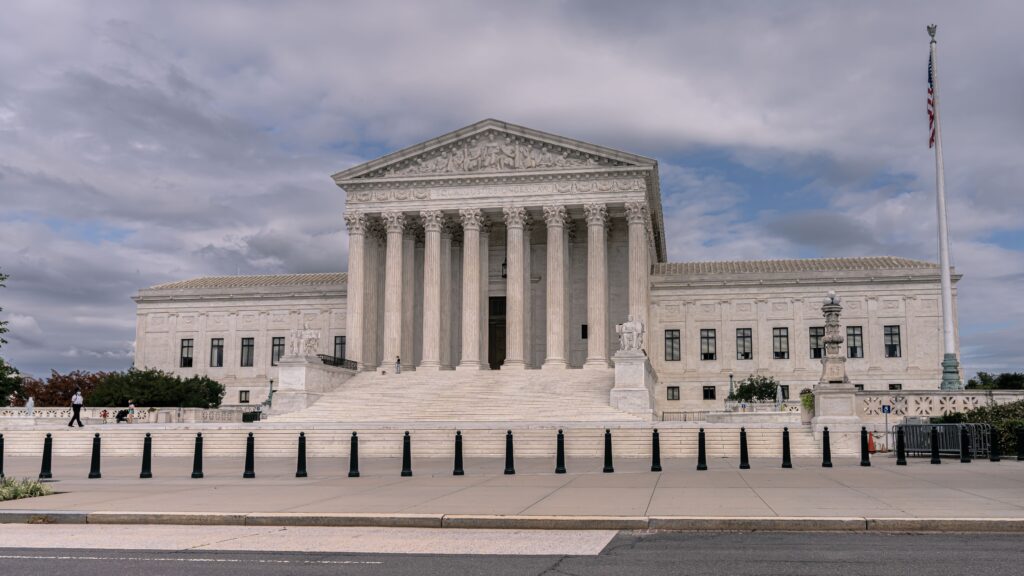Supreme Court overturns affirmative action, redefines college admissions
3 min read
The June 29 ruling Students for Fair Admissions, Inc. v. President and Fellows of Harvard College | Adam Michael Szuscik / Unsplash
by EMERSON GUTIERREZ
Staff Writer
On June 29, the U.S. Supreme Court, in a 6-3 ruling, put an end to affirmative action, which means that colleges and universities across the country are no longer allowed to take race into consideration in their admission processes.
The case that did so was Students for Fair Admissions, Inc. v. President and Fellows of Harvard College, which went to the Supreme Court after the lower courts sided with the universities rather than with SFFA. In October of 2022, the case was brought to the Supreme Court to be reconsidered, as SFFA believed that the original decision was not constitutional.
In 2014, the nonprofit organization Students for Fair Admission filed two separate suits against Harvard College and the University of North Carolina on the grounds that their practice of affirmative action violated the Civil Rights Act of 1964, as well as the 14th Amendment as it relates to the Equal Protection Clause.
In this case, both Harvard College and the University of North Carolina were scrutinized for their practices of affirmative action in college admissions. The former university was indicated to use race as a determining factor for African American and Hispanic students’ admissions, while UNC’s admissions decisions “may also consider the applicant’s race.”
The case that overturned affirmative action was decided as an attempt to eliminate racial discrimination for good. While it allows an applicant to talk about how race has affected their life, an institution is no longer allowed to pay explicit attention to the race of the applicant in its admission process.
One of the cases that the decision reversed was Grutter v. Bollinger, which ruled that higher education institutions must diversify themselves. This ruling upheld affirmative action, permitting the use of racial preference in student admissions to promote campus diversity. In the case, it was stated that affirmative action is not just all about race; in fact, there are other contributing factors that are considered, such as geographical diversity and socioeconomic status.
Affirmative action is intended to alleviate under-representation and to promote the opportunities of defined minority groups within a society to give them equal access to that of the majority population.
“Affirmative action is not the idea that its intention is to create more opportunity minority groups, nor does it mean it’s less opportunity for American people. Nor does taking it away automatically reduce opportunities,” said Owen Chong, a junior computer science major. “Take for example UC Berkeley, there were a lot fewer enrollments. What that shows is that people in underrepresented groups want to be in a place where there are more people from the same background.”
Colleges and universities across the country are in the process of making significant changes to the ways in which they conduct their admissions processes. Some expressed fear of a less diverse student population as a result of the Court’s decision.
“It does worry me that there will be a less diverse student body due to the decision made, but universities are pretty craft in their programs to increase their enrollments,” said Chong. “This case will just make it tremendously hard for them to do so, because no institution wants a lawsuit.”
Luis Machuca, a senior international business major, believes factors such as race should not be a major factor in the admissions process.
“Race shouldn’t be used as a big part; it should be more merit. Everyone is to be given the same opportunities, with fairness and equality. No unfair disadvantages,” said Machuca.
UMW has yet to make an official statement regarding the overturning of affirmative action. Other Virginia institutions of higher education, such as the University of Virginia, George Mason University and Virginia Commonwealth University, among others, published statements shortly following the court’s decision. UMW, however, still highlights affirmative action as a principle still practiced by the University on their official website.
”Although I’m on my final semester, it is rather concerning. I don’t worry for myself, but more so for my siblings and the future generations to come,” said Mohammed Hassan, a senior marketing major. “UMW has been great to me, so I know my siblings would fit in just right here as well. The elimination of affirmative action would make it difficult to get into prestigious institutions.”


